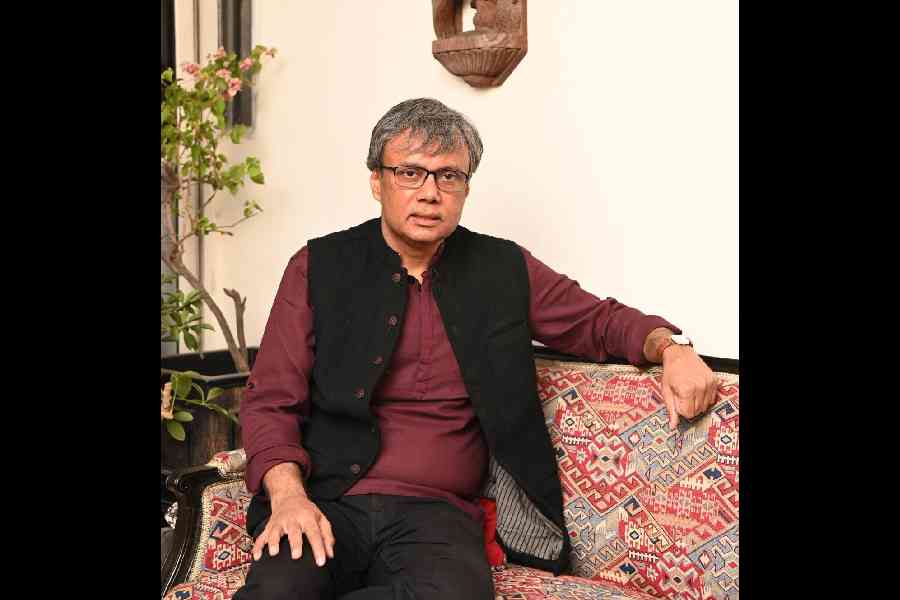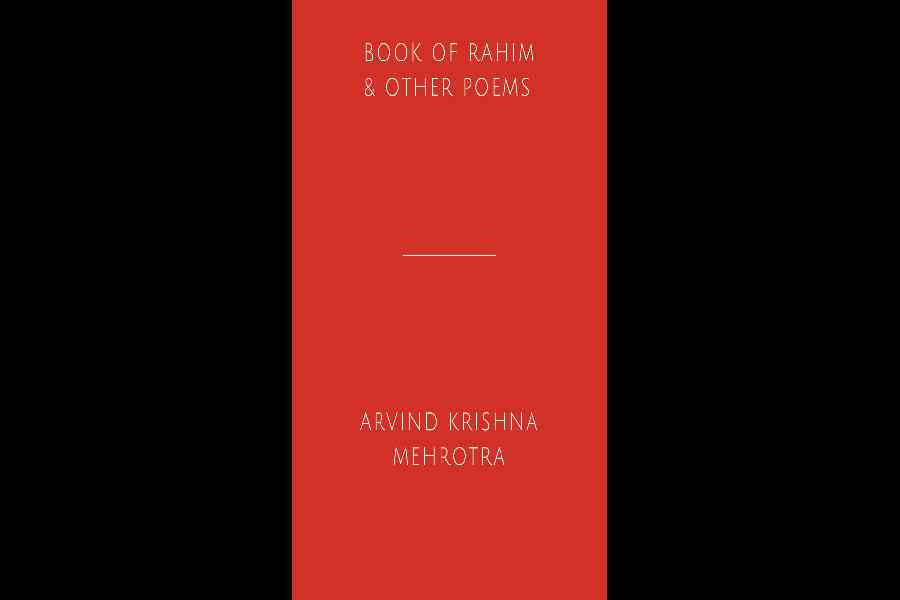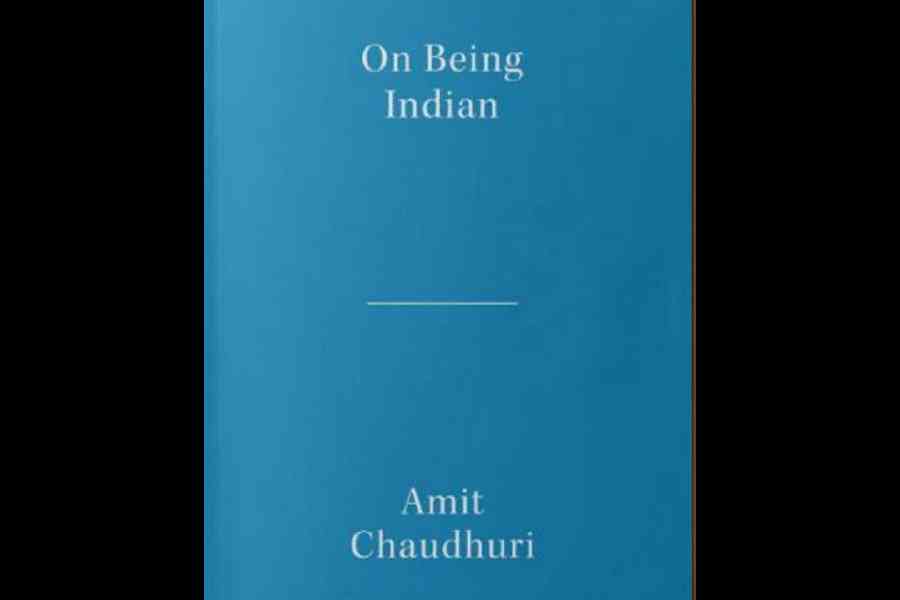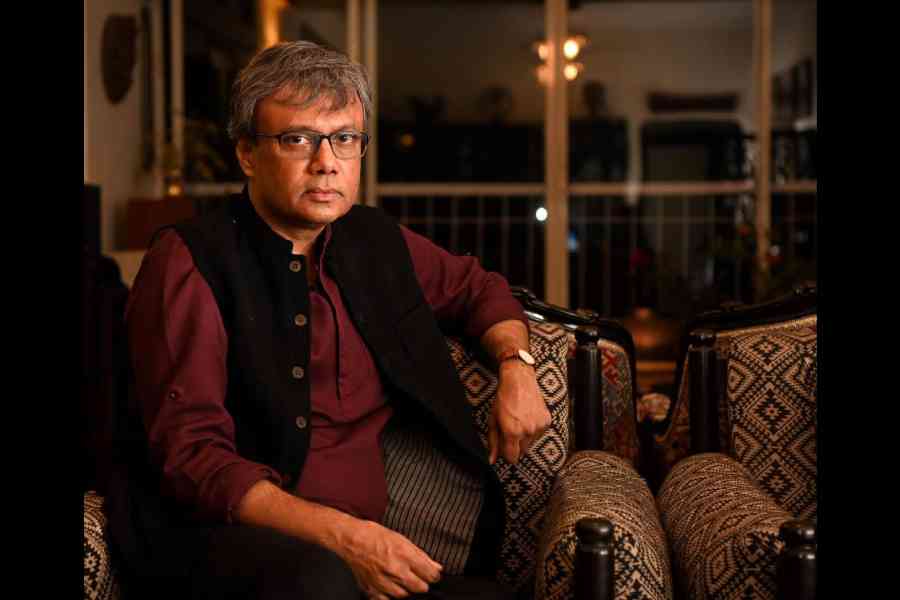With the launch of the Literary Activism imprint and its first two titles — Books of Rahim & Other Poems by Arvind Krishna Mehrotra and his own On Being Indian — Amit Chaudhuri is starting a new chapter in ‘literary activism’, a project that started in 2014. The forum has been organising symposiums and even launched its website, literaryactivism.com, in 2020, featuring some of the insightful talks given at the symposium as well as new essays, translations, and poems. The Calcutta launch of the imprint at Experimenter, in Ballygunge, on September 22 has set the ball rolling with renewed speed in restarting literary dialogue, liberating literary works from the shackles of market value, and creating an alternative space for new literary discourse. A tete-a-tete with Chaudhuri, who is averse to prescribed boundaries, his literary and music work being a testimony to his fluid trait.
Can you explain what sort of activism the Literary Activism forum indulges in?

Literary activism doesn’t really subscribe to a conventional idea of activism through literature — or we would be publishing only overtly political essays or material. In fact, the project is against rubrics and thematic definitions of that kind. Its aim is to open up the question of the literary in a way that has been largely closed down by the market and academia. To give an example, and I think this has happened post-globalisation, both the market and academia share the idea that literature and its importance can be identified principally through themes like, say, partition, nation, empire, the global, or the environment: that is, some historical occurrence or preoccupation that is already deemed significant. It’s easier for the market to pitch books that are identifiable by theme or genre, and for academia to discuss them; things which don’t fit in find it difficult to survive.
We are trying to look at the literary again, at the way it will not be pinned down by themes, and the ways in which it constantly redefines and engenders what’s significant rather than espouse a significance whose terms are already agreed upon. Literary activism is meant to question the restrictive contexts in which writers and artists are supposed to be creative today. So, the aim of the project is to open up the question of the literary and of creativity again: to draw attention to its open-ended nature.
In the face of many odds, how optimistic are you about sustaining this project?
We had some funds at the start (from the University of East Anglia, where he taught from 2006 to 2021). We had a few partnerships, with Infosys, with Indian universities, and then, from 2018 onwards, with Ashoka University. You can sustain things with very limited resources: I’m referring here to quite modest funding. Of course, there may be a number of external reasons — including, today, political ones — for projects coming to an end. We have sustained ‘literary activism’ for nine years now. However, the challenge is not just to sustain it but to make it constantly enlivening. My sense is that, thankfully, we have been able to sustain its liveliness and urgency.
The first two books in the imprint are varied and don’t conform to any popular theme or genre. What kind of work will Literary Activism publish?

We hope to publish any work, including political work, that has a degree of formal and imaginative idiosyncrasy and doesn’t fit into slots too readily. On Being Indian, for instance, is a political work which was going to be published by Westland anyway but we decided to make it part of the Literary Activism imprint because of its somewhat hybrid nature. I mean that it’s neither a conventional piece of political writing nor a reliable example of academic writing nor an only piece of reportage. We thought it might be a good fit for the imprint’s slightly eccentric and eclectic vision. Hopefully, through the kind of books we will publish, we will be able to send out a signal that there are other ways of looking at publishing. There are other ways of looking at books than, first and foremost, the matter of sales.
What is it that led to Literary Activism, the imprint?

It wasn’t preplanned; the entire project, from the start, comprises responses to specific moments and situations. I began teaching an eight-day creative writing workshop in India for the University of East Anglia in 2013, a course which went on to produce writers who then published books in India. However, I realised that creative writing courses were inadequate for addressing the perplexing place in which writers find themselves in the world of free-market globalisation.
Writers always want to write in a way that makes them feel alive — to cast aside the dead language, rhetoric, and idiom that forms our principal discourse at any point in history. This is no easy task; being a writer or an artist is a difficult thing and it requires both acuity of thought and courage, and I began to wonder if we could have a space where writers, artists, and thinkers could begin to express these things in a more creative, free, and intellectually challenging way than they’re allowed to at, say, literary festivals. So we started with a symposium in Calcutta, in partnership with Jadavpur and Presidency Universities. Ashoka University became the principal partner in 2018; then, in 2020, we launched the website.
This new publishing imprint was prompted by the fact that Arvind Krishna Mehrotra had written a book of poems after 25 years; he thought it would be a good idea if our project, rather than a mainstream publisher, published it. He has been connected with ‘literary activism’ since its inception; he’s one of our most important poets and essayists, and I thought his Book of Rahim would be a wonderful raison d’être for a new imprint. Ashoka University’s Centre for the Creative and Critical, instituted in 2022, came into the picture where funding was concerned, and Westland was prompt about coming on board with its publishing infrastructure. The series design is the result of a meticulous collaboration between Literary Activism and Westland.
So we already have two books from Literary Activism. What are the others and when can we expect them?
By February next year, we hope to publish Treasurer of Piggy Banks, a bilingual edition of Vinod Kumar Shukla’s poems, and Against Storytelling, the essays from the fourth symposium. We are not a regular publisher and don’t aim to bring out more than three or four books in a year.
Literary Activism was organising symposiums and there was already a website in place. What is it that necessitated the imprints?
Certain things only make sense as books. We can’t put Arvind’s entire collection, or Vinod Kumar Shukla’s, on the website. And, often, a physical entity that you can touch and hold and take around with you seems like the best option.
You have edited Arvind Krishna Mehrotra’s book. What are your observations?
As I said earlier, Arvind is one of our most important poets, critics, and essayists. His poetry, always unique, became especially interesting to me as he entered his 60s and 70s. For one thing, it’s as if he has become more youthful, and even more alert to the everyday. Autobiography, the everyday, history: these are recurring impetuses. In the poems about Lahore, it’s fascinating how autobiography finds a new form: montage. Similarly, in the sequence Ghalib, A Diary, he reminds us — a readership that consumes the historical as part of its daily diet — how history needn’t be a totalising picture; it can be captured far more powerfully through images and poetic rhythms.
Moving on to your book, On Being Indian, we find it to be honest, vocal, and unhindered, plus there is this phrase ‘organic intellectual’ which keeps on coming back in the book. Tell us about it.

When I encountered the term ‘organic intellectual’ through my daughter, I decided to look into it a little further: she was writing about people who she thought were organic intellectuals in the past. Gramsci’s own definition of the term is not entirely clear, but it seems that the ‘organic intellectual’ is a blue- or white-collar worker who works within the system, unlike the traditional intellectual, or the academic, or the professional activist, who, as it were, occupies a position transcending the system, and class.
I began to realise that we had ‘organic intellectuals’ around us, whose voices were becoming audible in 2019 in the lead-up to the anti-CAA protests: like the person from Zomato who tweeted, after a customer declined a delivery from a Muslim delivery man, ‘Food doesn’t have a religion. It is a religion’. The organic intellectual could be your neighbour, an ‘ordinary citizen’ who is extremely important to society’s sense of integrity, to its ability to critique itself and, from time to time, is not afraid to speak up. Employees and citizens speak up too. And they speak up not only against the government but, where necessary, against the grain of their own cultural milieu, as the bhakti poets did.










